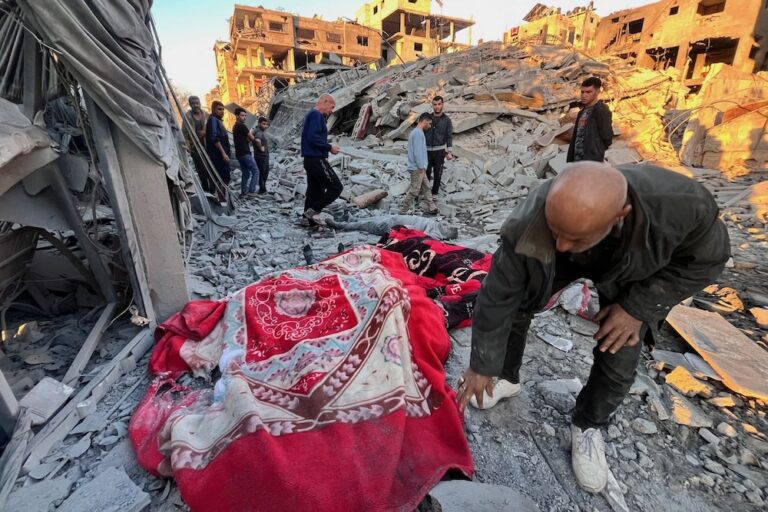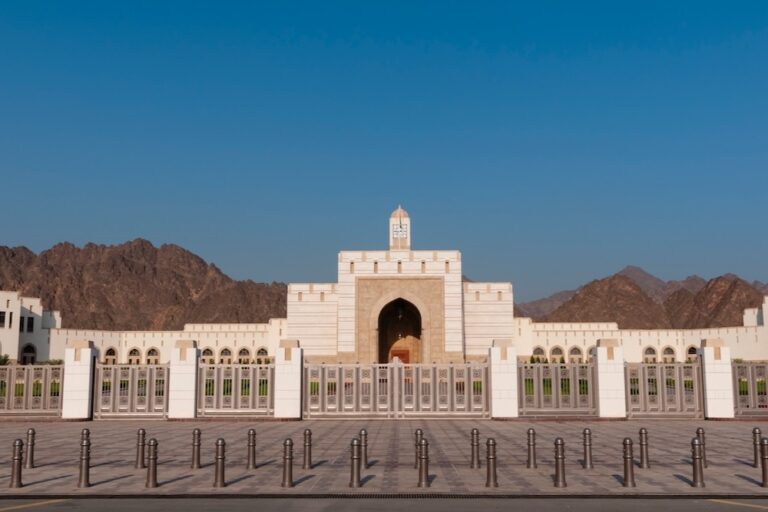July in Middle East and North Africa: A free expression roundup produced by IFEX's Regional Editor Naseem Tarawnah, based on IFEX member reports and news from the region.
Death by COVID, Death by State
Concerns are rising over the fate of journalists detained in overcrowded prisons during the COVID-19 pandemic in the wake of the death of two prominent journalists in the region. Egyptian journalist Mohamed Monir and Saudi Arabia’s Saleh Al-Shehi both succumbed to the coronavirus shortly after their respective releases from prison. RSF called for the immediate release of detained journalists in Egypt and Saudi Arabia, and an independent investigation to determine the level of Saudi prison responsibility in Al-Shehi’s death.
Monir’s death called further attention to the pandemic’s spread throughout Egypt’s overcrowded prisons that has put thousands of political prisoners, activists, and journalists at risk. Leaked letters from prisoners to Human Rights Watch indicate the death of several inmates from coronavirus and noted insufficient medical care and virtually no access to virus testing or symptom screening.
Egypt’s response to the outbreak has been called “a case study in repression, propaganda, and misinformation.” Underscoring this state of repression, recent weeks have seen the prison sentencing of women TikTok users for their video posts. Meanwhile, German authorities are investigating a suspected Egyptian spy who worked in Chancellor Angela Merkel’s press office for years and may have accessed data about Egyptian exiled journalists used to silence critics of President El-Sisi.
In Saudi Arabia, imprisoned women human rights activist Loujain Al-Hathloul has been incommunicado for several weeks, with her family unaware of her condition during the ongoing outbreak. Loujain’s brother, Waleed al-Hathloul, told the BBC that he believes authorities are trying to punish the family for their vocal criticism of her treatment. “We’re speaking out and trying to advocate for her release and that’s the price we’re paying.”
Bahraini pro-democracy activists Mohamed Ramadhan and Husain Moosa are at risk of imminent execution after a court reimposed their death sentences. Having now exhausted all legal avenues, their case has received widespread criticism following the announcement, with international bodies calling attention to the fact that confessions used as evidence to prosecute them were extracted through torture.
In Yemen, imprisoned journalists, academics and activists are also facing dire circumstances behind bars. The Gulf Centre for Human rights highlighted the plight of citizens who have been forcibly disappeared, sentenced to death, and seen their prison release delayed amidst a raging pandemic in the crisis-torn nation.
Palestine: Of Maps, Censorship, and Attacks
Palestinian organizations, including IFEX member The Arab Center for the advancement of Social Media (7amleh), rallied online in a bid to push for the inclusion of Palestine in Google Maps. According to the campaign, Google is violating international law and human rights agreements in regards to the recognition of the Palestinian state’s sovereignty.
The online campaign came on the heels of an ongoing row between pro-Palestinian activists and the tech giants over Palestine’s omission from their mapping services. An online petition has amassed over one million signatures thus far, and more recently, a viral post reignited the issue and even garnered celebrity attention.
While Palestine was originally labeled on Google Maps as West Bank and Gaza, the omission does lend further attention to the online censorship of Palestinian identity by social media platforms.
A recent paper by 7amleh highlighted the role of content moderation policies of pro-Palestinian content, arguing tht by censoring and de-platforming users and activists, companies were contributing to the narrowing space for freedom of expression. Model Bella Hadid exemplified the issue after her Instagram photo of her father’s passport listing Palestine as his birthplace was removed. Instagram claimed it violated “community guidelines on harassment or bullying” and said the platform does not allow “hate speech”.
According to the Palestinian Center for Development and Media Freedoms (MADA), attacks on Palestinian media have declined due to the pandemic lockdowns. In a report documenting violations against media and journalists during the first half of 2020, MADA noted that while attacks from the Palestinian Authority decreased during the lockdown period, Israeli authorities and Facebook’s attacks have continued, with the latter responding to content removal requests and banning users.
Meanwhile, in Gaza, Hamas authorities banned journalists in the Gaza Strip from working for the Saudi TV news channel, Al-Arabiya, after the station aired a report alleging several Hamas officials had been arrested for working for Israel.
#IraqProtests: Targeted Killings Persist
Amidst nationwide electric blackouts, young Iraqis have taken to the streets once more to decry crippling living standards. Authorities admitted 560 people have been killed since anti-government protests began in October 2019. According to a Gulf Centre for Human Rights (GCHR) report, ongoing violence in the country has seen a multitude of arrests, killings and kidnappings targeting protesters, activists, academics and journalists.
The violence in Iraq also resulted in the killing of prominent security expert Dr. Hisham Al-Hashemi who was shot outside his Baghdad house by armed assailants riding motorcycles. In one of his final tweets on his outspoken account, Al-Hashemi wrote: “Between prestige and sovereignty, the rights, blood and dignity of Iraqis have been lost, and their money has gone into the pockets of corrupt politicians.
In Brief:
In Jordan, the teachers’ syndicate was effectively dismantled by the government after police closed down the union’s branches across the country without warrants and arrested 25 board members, as well as dozens of other members. With charges ranging from financial corruption to social media postings, the recent publication of a document outlining the syndicate’s intent to strike to recover bonuses negotiated in 2019 is believed to be a catalyst in the crackdown.
Considered one of the only gains for Jordan’s civil society during the Arab Spring, the government completed their takeover last month by issuing a media gag order after the raids, appointing a committee to lead what remains of the organization, and quickly shutting down protests. Critics believe the government has been using draconian emergency laws enacted during the coronavirus lockdown last March to limit civil and political rights, with more activists arrested in recent weeks over comments on social media.
In Lebanon, a number of civil society organizations formed a coalition to oppose attempts by authorities to stifle freedom of expression. In the wake of an alarming rise in attacks on journalists and activists, the coalition, which includes IFEX members, called for parliament to urgently reform the media law to align with international law, and decriminalize defamation and insults, which has been used as a legal means by authorities to gag critics. “At this critical juncture for the country, Lebanon needs laws that protect people exposing corruption and misconduct rather than punishing them,” said the coalition.
After weeks of continued harassment, Moroccan journalist Omar Radi was arrested by authorities and charged with undermining state security by receiving foreign funding as well as collaborating with foreign intelligence, in addition to a rape charge. “Omar Radi’s detention is a worrying development, given that the Moroccan authorities in the past have plainly tried to make any charge against him stick in retaliation for his work as a journalist,” said CPJ Middle East and North Africa Program Coordinator Sherif Mansour, who called for Radi’s release and a transparent investigation into any sexual assault charges.
Tunisian blogger Emna Charqui was sentenced to six months in prison and a $700 fine for sharing a satirical COVID-19 Facebook post written in the style of a Quranic verse. Charqui was found guilty by a Tunisian court of “inciting hatred between religions”. IFEX member ARTICLE 19 decried the legal proceedings, arguing that abusive interpretations of a legislative decree “threaten the achievements of post-revolutionary Tunisia in terms of freedom of expression.”
The International Press Institute condemned the ‘systemic’ targeting of Al Jazeera journalists Ghada Oueiss and Ola Fares, who continue to face Saudi-led online smear campaigns and phone hacking for their critical reporting. Private pictures of Oueiss in a swimsuit were stolen from her phone after it was hacked and published online alongside accusations and innuendos on how the journalists had achieved their successful careers.
Lastly, the MENA Network for Countering Hate Speech organized an online side event at the United Nations Human Rights Council’s 44th session. Participants highlighted the status of online hate speech, pointing to journalists, activists, women and LGBTQI+ groups bearing the brunt of the abuse. The network, including IFEX members, called for international mechanisms to take immediate action to counter the spread of hate speech across the region and protect vulnerable groups.



